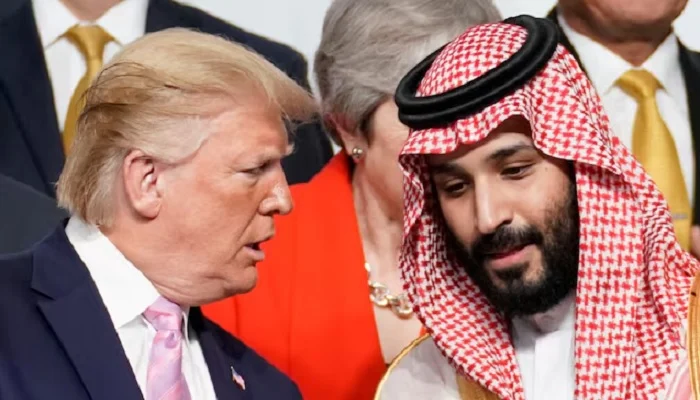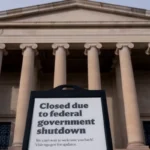Saudi Arabia Stands Firm on Conditions for Israel Normalisation Ahead of Trump Talks
Saudi Crown Prince Mohammed bin Salman is expected to visit the White House this month, but despite US President Donald Trump’s repeated claims of a breakthrough, diplomats say Riyadh is unlikely to announce any deal to normalise relations with Israel during the trip.
A potential agreement between Saudi Arabia and Israel would significantly reshape Middle Eastern geopolitics and strengthen Washington’s influence in the region. Trump has continued to express optimism, saying he hopes Saudi Arabia will “very soon” join the countries that signed the 2020 Abraham Accords.
However, according to Gulf sources cited by Reuters, Riyadh has reaffirmed that its stance remains unchanged: it will only consider formal ties with Israel if a clear roadmap toward Palestinian statehood is agreed upon. Saudi officials want to ensure that both Washington and Riyadh are fully aligned before any public statements are made, particularly ahead of the November 18 meeting.
Middle East expert Jonathan Panikoff said the Crown Prince is unlikely to move forward without a credible path to an independent Palestinian state. He added that MBS is expected to push Trump for stronger American support for the establishment of a sovereign Palestinian state.
Trump’s Renewed Focus on Abraham Accords
This visit marks MBS’s first trip to Washington since 2018. Trump has repeatedly promoted the expansion of the Abraham Accords, under which the UAE, Bahrain and Morocco normalised relations with Israel.
But Saudi officials insist that any recognition of Israel must be based on a new, comprehensive framework — not simply an extension of the existing accords. For the kingdom, home to Islam’s holiest sites, normalisation would be a major and politically sensitive move.
With public distrust of Israel still high due to the Gaza conflict that began in October 2023, Riyadh says any progress must include firm steps toward Palestinian statehood. Saudi Foreign Ministry official Manal Radwan has called for a time-bound Israeli withdrawal from Gaza, an international protection force, and the reinstatement of the Palestinian Authority — all prerequisites for regional stability and the two-state solution.
Given Israeli Prime Minister Benjamin Netanyahu’s strong opposition to a Palestinian state, Saudi officials see little immediate chance of meeting Trump’s expectations for normalisation.
US–Saudi Defence Pact Expected to Dominate Talks
Saudi leaders plan to steer the Washington meeting toward defence cooperation and economic investment, wary that the Israel normalisation issue could overshadow more achievable priorities.
defenseThe two sides are expected to finalise a scaled-down defence agreement — not the fully ratified treaty Riyadh originally hoped to secure in exchange for normalization. Modeled partly on an arrangement with Qatar, the pact will boost cooperation in advanced defence technology and enhance US military protections for Saudi Arabia.
Saudi Arabia pushed for clauses allowing future presidents to elevate the agreement to a full treaty, ensuring long-term security continuity. Analysts say this pact may serve as a stepping stone toward a future treaty, depending on progress with Israel.
normalizationExperts note that the war in Gaza has significantly shifted the negotiating landscape. While Riyadh still links normalisation to Palestinian statehood, it now wants its own national security concerns addressed separately.
Reduced Threat From Iran Shifts Priorities
—hasA NATO-style treaty now appears unlikely as regional dynamics evolve. Iran—once the main driver of Riyadh’s push for binding US guarantees — has weakened due to sustained Israeli strikes on its nuclear and military infrastructure. Its allied groups, including Hezbollah, Hamas, and the Houthis, have also suffered major setbacks.
With Iran’s threat level reduced, Saudi Arabia is less inclined to pursue a treaty requiring difficult congressional approval. Moreover, such a pact might force Riyadh to limit its growing economic and technological ties with China, complicating its long-term strategic goals.
Under the current defense agreement, the US and Saudi Arabia will expand joint military exercises, deepen cooperation between defense industries, restrict some Chinese military-related engagements, and speed up the sale of advanced American weapons—a process often slowed by political disputes in Washington.
#SaudiArabia #Israel #Trump #MiddleEast #MBS #USPolitics #Palestine #AbrahamAccords #Gaza #Diplomacy







